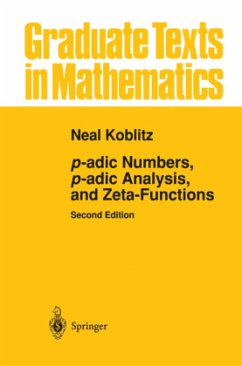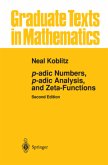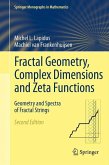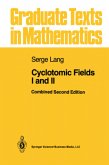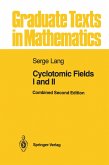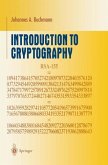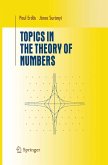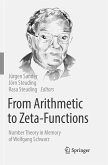This work has become the standard introduction to the theory of p-adic numbers. The 2nd edition adds a deeper treatment of p-adic functions, including the Iwasawa logarithm and the p-adic gamma-function, plus new exercises and an appendix of answers and hints.
Neal Koblitz was a student of Nicholas M. Katz, under whom he received his Ph.D. in mathematics at Princeton in 1974. He spent the year 1974 -75 and the spring semester 1978 in Moscow, where he did research in p -adic analysis and also translated Yu. I. Manin's "Course in Mathematical Logic" (GTM 53). He taught at Harvard from 1975 to 1979, and since 1979 has been at the University of Washington in Seattle. He has published papers in number theory, algebraic geometry, and p-adic analysis, and he is the author of "p-adic Analysis: A Short Course on Recent Work" (Cambridge University Press and GTM 97: "Introduction to Elliptic Curves and Modular Forms (Springer-Verlag).
Neal Koblitz was a student of Nicholas M. Katz, under whom he received his Ph.D. in mathematics at Princeton in 1974. He spent the year 1974 -75 and the spring semester 1978 in Moscow, where he did research in p -adic analysis and also translated Yu. I. Manin's "Course in Mathematical Logic" (GTM 53). He taught at Harvard from 1975 to 1979, and since 1979 has been at the University of Washington in Seattle. He has published papers in number theory, algebraic geometry, and p-adic analysis, and he is the author of "p-adic Analysis: A Short Course on Recent Work" (Cambridge University Press and GTM 97: "Introduction to Elliptic Curves and Modular Forms (Springer-Verlag).
From the reviews of the second edition: "In the second edition of this text, Koblitz presents a wide-ranging introduction to the theory of p-adic numbers and functions. ... there are some really nice exercises that allow the reader to explore the material. ... And with the exercises, the book would make a good textbook for a graduate course, provided the students have a decent background in analysis and number theory." (Donald L. Vestal, The Mathematical Association of America, April, 2011)

